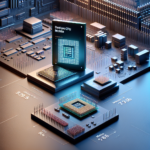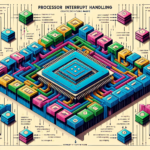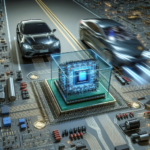The Role of CPUs in High-Performance Computing (HPC)

The Role of CPUs in High-Performance Computing (HPC)
High-Performance Computing (HPC) has become a cornerstone of modern scientific research, data analysis, and complex simulations. At the heart of HPC systems lies the Central Processing Unit (CPU), a critical component that drives computational power and efficiency. This article delves into the role of CPUs in HPC, exploring their architecture, performance metrics, and future trends.
Understanding High-Performance Computing (HPC)
What is HPC?
High-Performance Computing refers to the use of supercomputers and parallel processing techniques to solve complex computational problems. HPC systems are designed to perform at the highest operational rate for computational tasks, enabling researchers and engineers to tackle problems that are too large or complex for standard computers.
Applications of HPC
HPC is utilized across various fields, including:
- Scientific Research: Simulating physical phenomena, such as climate modeling and astrophysics.
- Engineering: Computational fluid dynamics, structural analysis, and materials science.
- Healthcare: Genomic sequencing, drug discovery, and medical imaging.
- Finance: Risk analysis, algorithmic trading, and financial modeling.
- Artificial Intelligence: Training large-scale machine learning models and neural networks.
The Architecture of CPUs in HPC
Core Components of a CPU
A CPU consists of several key components that work together to execute instructions:
- Arithmetic Logic Unit (ALU): Performs arithmetic and logical operations.
- Control Unit (CU): Directs the operation of the processor.
- Registers: Small, fast storage locations for immediate data access.
- Cache: High-speed memory that stores frequently accessed data to reduce latency.
Multi-Core Processors
Modern CPUs in HPC systems often feature multiple cores, allowing them to perform parallel processing. Multi-core processors can execute multiple instructions simultaneously, significantly enhancing computational speed and efficiency. This parallelism is crucial for handling the large-scale computations typical in HPC applications.
Instruction Set Architecture (ISA)
The ISA defines the set of instructions that a CPU can execute. Common ISAs in HPC include x86, ARM, and RISC-V. The choice of ISA impacts the performance, power consumption, and compatibility of the CPU with various software applications.
Performance Metrics for CPUs in HPC
Clock Speed
Clock speed, measured in gigahertz (GHz), indicates how many cycles a CPU can perform per second. Higher clock speeds generally translate to faster processing times, but they also increase power consumption and heat generation.
Floating Point Operations Per Second (FLOPS)
FLOPS is a critical metric for HPC, measuring the number of floating-point calculations a CPU can perform per second. HPC applications often require extensive floating-point arithmetic, making FLOPS a key indicator of performance.
Memory Bandwidth
Memory bandwidth refers to the rate at which data can be read from or written to memory. High memory bandwidth is essential for HPC applications that process large datasets, as it reduces bottlenecks and improves overall system performance.
Energy Efficiency
Energy efficiency is increasingly important in HPC, as power consumption and cooling costs can be significant. CPUs with higher performance-per-watt ratios are preferred, as they deliver more computational power while consuming less energy.
The Role of CPUs in HPC Systems
Task Scheduling and Load Balancing
CPUs play a crucial role in task scheduling and load balancing within HPC systems. Efficient scheduling algorithms ensure that computational tasks are evenly distributed across CPU cores, maximizing resource utilization and minimizing idle time.
Data Management
CPUs are responsible for managing data flow between memory and storage devices. Effective data management is vital for maintaining high performance, as it ensures that CPUs have quick access to the data they need for processing.
Integration with Other Components
In HPC systems, CPUs work in conjunction with other components, such as Graphics Processing Units (GPUs) and Field-Programmable Gate Arrays (FPGAs). While GPUs and FPGAs excel at parallel processing tasks, CPUs are essential for coordinating these components and handling tasks that require sequential processing.
Future Trends in CPU Development for HPC
Advancements in Semiconductor Technology
Continued advancements in semiconductor technology are driving the development of more powerful and energy-efficient CPUs. Innovations such as 3D stacking, advanced lithography techniques, and new materials are expected to enhance CPU performance and reduce power consumption.
Specialized Architectures
As HPC applications become more diverse, there is a growing trend towards specialized CPU architectures tailored for specific workloads. For example, CPUs designed for AI and machine learning may feature dedicated accelerators for neural network processing.
Quantum Computing Integration
Quantum computing holds the potential to revolutionize HPC by solving problems that are currently intractable for classical computers. While quantum computers are still in the experimental stage, future HPC systems may integrate quantum processors with traditional CPUs to leverage the strengths of both technologies.
FAQ
What is the difference between a CPU and a GPU in HPC?
CPUs are designed for general-purpose computing and excel at tasks that require sequential processing. GPUs, on the other hand, are optimized for parallel processing and are highly effective for tasks such as matrix multiplication and image processing. In HPC systems, CPUs and GPUs often work together to handle different aspects of computational workloads.
How do multi-core CPUs improve HPC performance?
Multi-core CPUs can execute multiple instructions simultaneously, enabling parallel processing. This parallelism allows HPC systems to handle larger and more complex computations more efficiently, reducing processing times and improving overall performance.
Why is energy efficiency important in HPC?
Energy efficiency is crucial in HPC because high-performance systems consume significant amounts of power, leading to substantial operational costs and heat generation. Energy-efficient CPUs deliver more computational power per watt, reducing power consumption and cooling requirements while maintaining high performance.
What role do CPUs play in data management within HPC systems?
CPUs manage data flow between memory and storage devices, ensuring that data is quickly accessible for processing. Effective data management is essential for maintaining high performance in HPC systems, as it minimizes bottlenecks and maximizes resource utilization.
How might quantum computing impact the future of HPC?
Quantum computing has the potential to solve problems that are currently beyond the reach of classical computers. Future HPC systems may integrate quantum processors with traditional CPUs, leveraging the strengths of both technologies to tackle complex computational challenges more effectively.
Conclusion
The role of CPUs in High-Performance Computing is multifaceted and indispensable. From task scheduling and data management to integration with other components, CPUs are the backbone of HPC systems. As technology continues to advance, the development of more powerful, energy-efficient, and specialized CPUs will drive the future of HPC, enabling new scientific discoveries and technological innovations.




